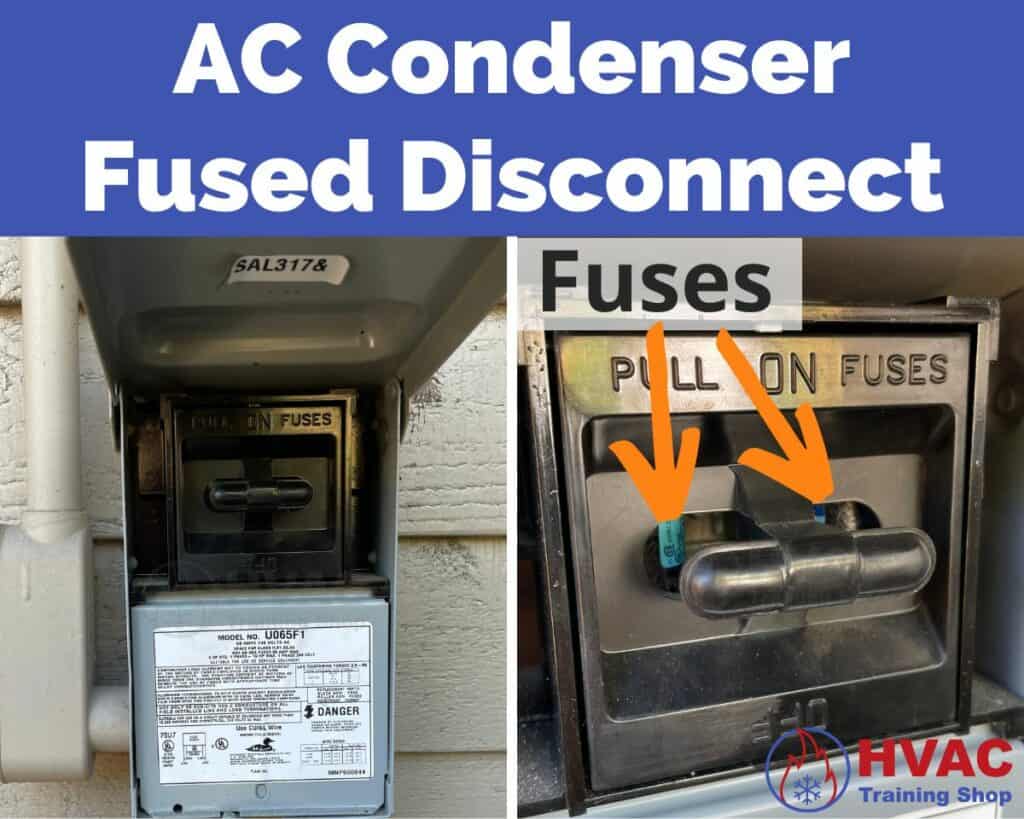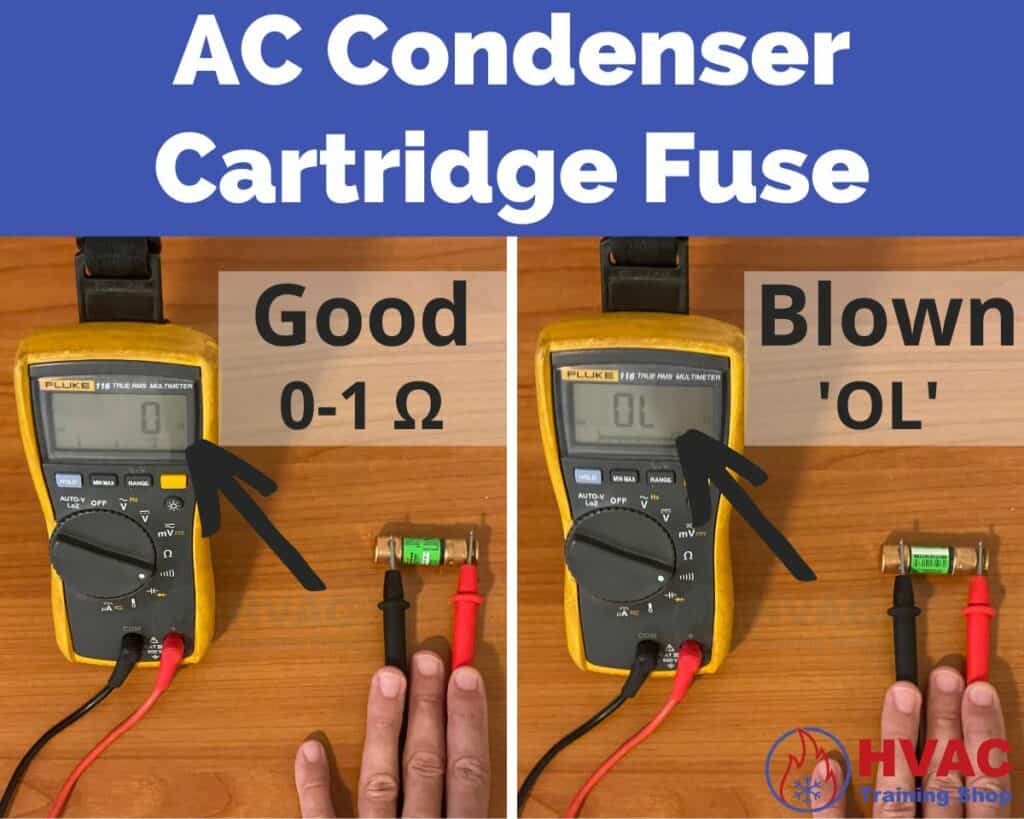Did your AC unit suddenly stop working and now it seems like it doesn’t have any power at all?
It could be due to a blown fuse.
AC units blow their fuse when a component goes bad – such as a capacitor, fan motor, or compressor.
In other cases, bad wiring can also cause an AC fuse to blow.
In this article, I’ll show you how to tell if your AC fuse is blown.
I’ll also go over 3 different types of fuses – so you know how to tell if any type of AC fuse is blown.
How to Tell if Your AC Unit’s Fuse Is Blown
Cartridge fuses are used in most disconnect switches for AC condenser units. If your condenser unit stops running, then one or both of the cartridge fuses inside the disconnect could be blown.
To check your AC unit’s fuse, follow these steps:
- Turn off the circuit breaker that goes to your AC.
- Open the cover to the AC unit disconnect switch.
- Pull the handle in the disconnect to remove the fuses.
- Use your multimeter’s resistance or continuity setting to test the fuses.


How to Tell if Your AC Control Board Fuse Is Blown
Control boards in ACs usually use a blade fuse or, in some cases a glass cartridge fuse.
Fortunately, both of these types of fuses have visual indicators to tell whether they are blown.
How to Tell if an AC Control Board Blade Fuse Is Blown
Blade fuses are the types of fuses that most people are familiar with since they’re also used in automobiles.
A blade fuse consists of a plastic case with two metal prongs sticking out that plug into your control board.
If a blade fuse is blown, you can look at the center of the plastic casing on the fuse to check on the melting element:
- If there is a black smudge in the center of the plastic case, then the fuse is blown.
- If the element is not connected in the center, then the fuse is blown.

How to Tell if an AC Control Board Glass Cartridge Fuse Is Blown
Glass cartridge fuses aren’t as common as blade fuses in control boards. But they are used in some control boards, so I thought I’d include them here.
Glass cartridge fuses have a transparent glass tube that the melting element goes through. The melting element in a glass cartridge fuse is visible, so you can see whether the fuse is good or blown.

What to Do When Your AC Fuse Is Blown
If your AC’s fuse blows, the first thing that you need to do is figure out what caused the fuse to blow.
Fuses don’t just blow for no reason – there’s always a cause.
In fact, a fuse is a safety device – if the fuse doesn’t blow when a component goes bad, then your AC unit will burn out or catch fire.
Whatever you do – Do not just replace a bad fuse with a new fuse without fixing the AC unit first.
What you need to do is pinpoint the cause of the blown fuse.
Here are a few reasons why an AC might blow its fuse:
- Bad capacitor
- Bad condenser fan motor
- Short circuit in the wiring
- Bad compressor (grounded out, shorted out, or hard starting)
I’ll go over these causes below.
AC Fuse Blown Because of Bad Capacitor
The capacitor in your AC unit is used to provide an initial “jolt” of electricity to start the electric motors in your AC unit.
If your AC unit’s capacitor is bad, the compressor or condenser fan will draw too much electricity and blow a fuse inside the disconnect.
If your AC unit’s fuse is blown, it could have a bad capacitor that needs to be swapped out.
If you have a multimeter, you can test your AC capacitor to see if it’s bad.
AC Fuse Blown Because of Bad Condenser Fan Motor
A bad AC condenser fan motor is another cause of a blown fuse in an AC unit.
A condenser fan motor that’s burned out or seized up will overdraw amps and burn out its fuse.
If you suspect that your AC condenser fan motor is bad, then you can test the motor to see if it’s working properly.
AC Fuse Blown Because of Short Circuit in Wiring
A short circuit in your AC’s wiring will blow fuses instantly.
A short circuit happens when an exposed piece of wire touches another wire or a piece of metal in your AC unit.
Short circuits can also happen if a component in your AC unit is miswired.
AC Fuse Blown Because of a Bad Compressor
A bad AC compressor will almost always cause your AC unit’s fuses to blow.
The compressor is the “heart” of your AC unit and is the primary driver of the refrigeration process that cools your home.
If your compressor’s windings short circuit or burn out, then your AC compressor won’t turn on and will blow fuses instead.
A locked-up compressor eventually happens after years of wear and tear, and will also cause fuses to blow.
If the compressor in your AC goes bad, in most cases you should just get a whole new AC unit.



